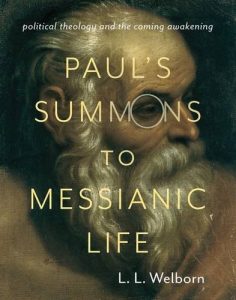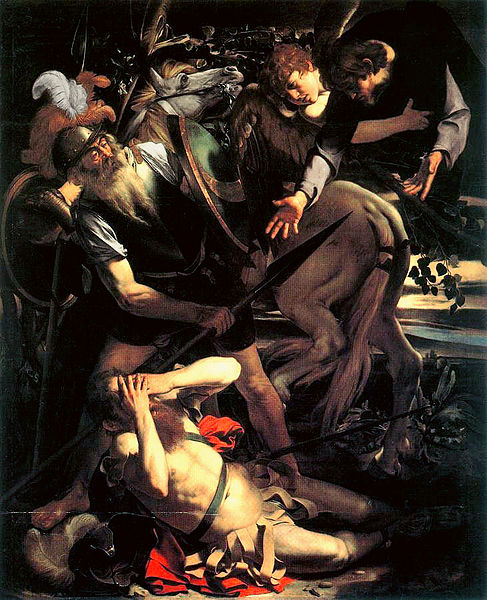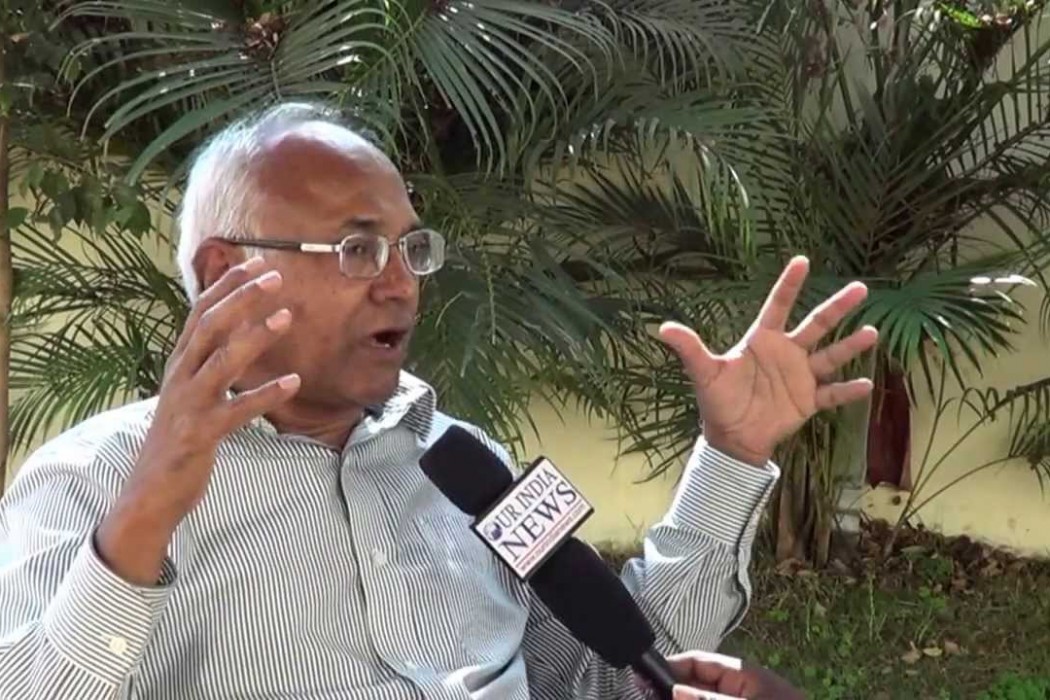Welborn, Larry L. Paul’s Summons to Messianic Life: Political Theology and the Coming Awakening (Insurrections: Critical Studies in Religion, Politics, and Culture). New York: Columbia University Press, 2015. ISBN 9780231171311. Hardcover, paperback, e-book. 154 pages.
With the unprecedented amount of political upheaval throughout the west since the turn of the century, especially after the supposed triumph of liberal capitalism over its rival ideologies, many in political philosophy and theology today are asking, “where is a fresh blueprint for a radical politics to be found?” For an increasingly influential group of scholars in critical theory, this question is answered not by a revised archetype of the “militant” contrived only to be exhausted again like others in the past, but rather this blueprint is found in one of the oldest and most foundational theologians of the west: the Apostle Paul.
Following Jacob Taubes’ lead with his collection of lectures given in Germany in 1987 and then published in English in 2003 as The Political Theology of Paul, notable contemporary figures in continental philosophy such as Slavoj Žižek, Alain Badiou, and Giorgio Agamben have all written on the emancipatory potential of the Pauline corpus.
In Paul’s Summons to Messianic Life: Political Theology and the Coming Awakening, L.L. Welborn tackles this recent theo-philosophical literature on the Apostle Paul and his Epistles, particularly the book of Romans. Although the critical theorists who have written on Paul write from extremely diverse religious backgrounds in the colloquial sense, they all share a similar thesis about the figure of Paul and his letters serving as a significant imaginary for a universal community capable of rising against our current era of neoliberalism. This idea is likened to the way that the church rose to challenge the prevailing political order of the Roman Empire at the dawn of the Christian movement. Welborn writes, “Paul wrote his epistle to the Romans at the ‘midnight’ of the first century, the reign of Nero” (vii) and that “in this midnight of the twenty-first century, we must hold fast to the memory of Paul” (xvii).
However, whereas these critical theorists examine Paul through the lens of continental philosophy and cultural theory, Welborn seeks to synthesize and critique their analyses with an added element: his own training and qualifications as a New Testament historian. The crux of Welborn’s argument, as outlined in the preface, is to counter the assumption that the meaning of Paul’s understanding of kairos—the opportune moment—means that Paul does not have in common the “philosopher’s commitment to the project of knowledge” or a concern for “universal truth”—both staples of some of the recent critical theorists’ appropriations of Paul, most notably Badiou.
Nor does Paul have space for “philosophical teleology” or “passivity.” In Welborn’s words, Paul seeks to “hasten the awakening,” to enter into “the today of salvation”: he neither looks forward toward an eschatologically escapist and futuristic sense of the parousia, therefore unable to engage the struggles of his day, nor does the Apostle advocate a blind, simple obedience to civic authorities.
In the first chapter the author cites Taubes’ well-known text on Paul wherein Taubes asserts that the dual commandment to love God and others is reduced to simply a love for others in the divine kenosis when Christ is emptied at the cross, leaving us with no God to love. This in turn also leaves us with the command to love our neighbor without a divine or transcendent origin for such an absurd act that contradicts human proclivity toward contempt for others.
For Welborn, in The Neighbor: Three Inquiries in Political Theology neither Kenneth Reinhard by way of Lacan’s theory of sexuation, nor Eric Santner by way of self-alienation and Franz Rozenweig’s “monotheism as therapy,” nor Žižek by way of a denial of the loss of the vengeful God against Levinas’ “epiphany of the transcendental Other who summons me to infinite ethical responsibility” can provide a way forward through this aporia of ethics without transcendence.
The solution to this enigma then resides in Romans 13:8-14, a text which both Agamben (with his emphasis on the Apostle’s “now time”) and Badiou (with his emphasis on the awakening of the new self) neglect in their own volumes on Paul. Again, what matters is the kairos, which “is not a supramundane reality, which exists ‘out there,’ and arrives out a divinely ordained future, but a temporal possibility that may be actualized in the moment when it is known” (11-12). Indeed, “the kairos has long since arrived” in the past coming of the Messiah. It is the Christ event which has already occurred, instituting a new temporality, whose eschatological ramifications necessitate love for the neighbor.
One of the main criticisms of Agamben’s commentary on Romans, The Time that Remains, leveled in Welborn’s book is that although the former successfully divests kairos of its tendency to be interpreted in an apocalyptic manner, the Pauline “now time” is instead firmly implanted in secular time, or chronos, such that it never actually arrives—and if it does it is barely “graspable.” Instead of inciting a thorough awakening then, Agamben’s theory of kairos merely calls for a “disjointedness” or a “slight adjustment” to the secular world.
 Against this, Welborn analyzes Jesus’ proclamation that “the Kingdom of God is come near,” that for him kairos is the end of chronos and signals both the end of our normal experience of time as the “ceaseless projection of ourselves” (this in reference to linguist Émile Beneviste’s theory of “time-positing”) and the end of the social order predicated on that experience. In my understanding, once we stop experiencing time as our own self-consciousness being cast onto spatial awareness we can recognize the Other, we can love our neighbor and transition suddenly from chronos to kairos.
Against this, Welborn analyzes Jesus’ proclamation that “the Kingdom of God is come near,” that for him kairos is the end of chronos and signals both the end of our normal experience of time as the “ceaseless projection of ourselves” (this in reference to linguist Émile Beneviste’s theory of “time-positing”) and the end of the social order predicated on that experience. In my understanding, once we stop experiencing time as our own self-consciousness being cast onto spatial awareness we can recognize the Other, we can love our neighbor and transition suddenly from chronos to kairos.
Thus, for Welborn, the sleep from which Paul calls us to awaken is the desire for unconsciousness, or a life lived as though dead, that is induced by an authoritarian and violent social order such as Rome—this is described in the writings of Seneca and others. In Paul’s awakened state a person goes from object to subject, from that which is merely a prop for the ruling class’ manipulation to a subject with revolutionary agency. Against theories of existential awakening from sleep as “moral lethargy” in ancient philosophy and against the pursuit of knowledge and mastery of the self in order to overcome more primal desires, Paul for Welborn calls us to realize the messianic event ever more intensely and put to death our “self-seeking” self, to transition the object of our desires away from sin and toward the Messiah and the welfare of our neighbor in an almost purely Augustinian theological turn.
Welborn writes:
The awakened self is a militant, armed for struggle against the powers of darkness that had once enthralled him and that still hypnotize others. And the awakened self participates in a collective consciousness, bound to others by the love that led the Messiah to die for all (53).
Paul is emphatic that in this new community, according to Romans 13:8a, believers should “Owe no one anything, (mēdeni mēden opheilete) except to love one another.” Welborn maintains that “the verb opheilō denotes financial, legal, or social obligation – so, indebtedness” (55). What Welborn calls “mutualism” here is a direct affront to the whole Roman system of obligation by patronage. “In practice,” he states, “patronage was a means of social control through the manipulation of access to scarce resources” (55). As a result, “Roman society was organized as a pyramid of obligation, with the emperor as supreme patron” (56).
Drawing parallels with today, this seems eerily similar to the system of credit and debt which undergirds the circulation of capital throughout the neoliberal economy of the twenty-first century, granting and restricting access to goods and services to therefore maintain the current state of inequality and perpetuate social management. We have fallen “asleep” under the domination of the economic system ruled by the few and governing the many. Perhaps Paul’s “hopelessly utopian gesture” against the system of Roman patronage remains relevant for us in our own political moment as the author suggests. Perhaps our own moment of Pauline “awakening” is on the horizon.
The community that Paul institutes then is in contempt of Roman social order and law, but it is also simultaneously the fulfillment of Jewish law. Love for the Other is the supreme obedient act to the Torah, and to assert the kind of equality Paul does here flies in the face of the whole system of Roman societal divisions between rich and poor, slave and free, male and female, Jew and gentile, etc.
Addressing one of my favorite insights in Agamben’s commentary on Romans, the identification of an explicit secularization of Paul’s use of the Greek word klēsis in Marx’s “class” analysis, Welborn describes how social division in Roman society was “both symbolic and frighteningly real.” Furthermore, as Georg Lukács has elucidated, the violence perpetrated on women and children, slaves, prostitutes, gladiators, and others was ingrained into the legal code, which was derived from a natural, religious, and cultural order such that “class consciousness” was not possible. Because of this fact, Paul had to instigate his revolution from a religious or metaphysical event, the coming of the Messiah, to jar the assumptions of Roman culture.
While it is indeed anachronistic to overlay an orthodox Marxist politics onto a first century Jewish theologian from the general viewpoint of Biblical scholars, it is exactly the implications of the messianic event with which Paul was grappling that would necessitate a community that transcends traditional social divisions. Welborn praises Agamben for his insights here, but also offers an excellent critique. Agamben speaks of a new Pauline community without identity, but it is precisely this lack of positive identity in Agamben’s “non-all,” his strict negation of all divisions, that leaves the community without a realistic revolutionary potential in the world.
 Instead, Welborn sees Badiou’s portrait of Paul in his monograph Saint Paul: the Foundation of Universalism as filling this gap. Badiou’s proclamation is that “there is only one world,” that the political and ethical universalism posed by Paul is “performative,” a declaration of a new eschatological reality which advocates real-world action by what Welborn terms the “militants of the messianic event.” Although Welborn sees Badiou’s universalism as more accurate by virtue of its urgency than Agamben’s ekklēsia, he disagrees with Badiou’s “universal subject” and instead determines that the Messiah acts more as a “singular subject” which inaugurates the life of a new community.
Instead, Welborn sees Badiou’s portrait of Paul in his monograph Saint Paul: the Foundation of Universalism as filling this gap. Badiou’s proclamation is that “there is only one world,” that the political and ethical universalism posed by Paul is “performative,” a declaration of a new eschatological reality which advocates real-world action by what Welborn terms the “militants of the messianic event.” Although Welborn sees Badiou’s universalism as more accurate by virtue of its urgency than Agamben’s ekklēsia, he disagrees with Badiou’s “universal subject” and instead determines that the Messiah acts more as a “singular subject” which inaugurates the life of a new community.
While this distinction is interesting, Welborn could undoubtedly devote more of the last chapter to this idea in order to make a more convincing analysis. The primacy of universalism in Badiou is a central idea running throughout the entirety of his Pauline monograph from start to finish, not to mention his politics in general.
At the end of the book, Welborn does not provide a robust answer to the problem of Romans 13:1-7 with its admonishment of obedience to the state versus the eschatological ethical injunctions of revolution immediately following in verses 8-14. In his view, either verses 1-7 are a work of interpolation or the ideological rift in the text remains to be solved, and we are left with either “a revolution without a revolt” or “a revolution that is indistinguishable, in its long-term consequences, from revolt” (70).
Although it may be frustrating for some, a firm conclusion may not be the point of Welborn’s analysis: we must recognize that the Biblical text does not always fit our desire for a streamlined and coherent analysis. Apart from the abbreviated length of the book which leaves some analyses wanting, Welborn shows that he is well versed in continental philosophy and critical theory, as well as his own field of New Testament studies, and makes a solid contribution to this emerging theo-philosophical field from a much-needed external angle. What is clear is that Paul’s messianic movement and the community he inaugurates crosses the divisions of the social context in which he finds himself, and while the recent critical theorists’ analyses may at some points be subject to critical inquiry by New Testament historians, it does maintain an overarching fidelity to the project Paul embarked on two thousand years ago in a political climate that was strangely similar to ours today.
Benjamin Steele-Fisher is a newly minted graduate student in Religious Studies at the University of Denver. He writes (hopefully increasingly) at dwarfunderthechessboard.wordpress.com and tweets (hopefully sparingly) at @_fishb.




